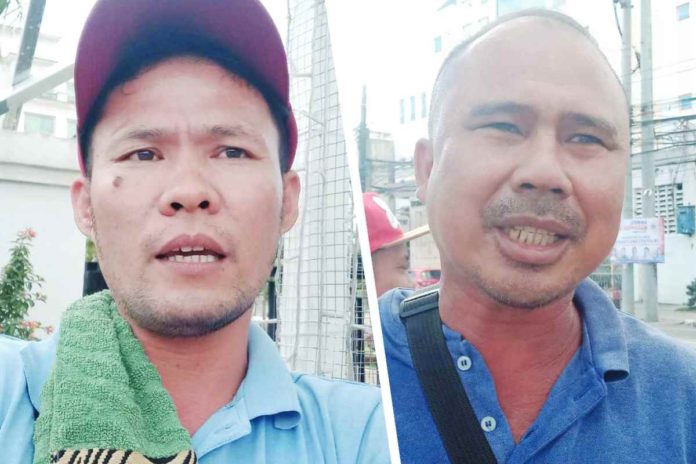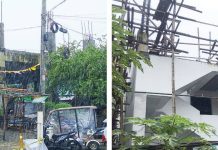
ILOILO City – In a display of despair and resilience, over 100 traditional jeepney drivers from this city and its outskirts converged in a transport caravan recently. But it was not just a protest against the government’s public utility vehicle modernization program. It was a desperate cry from souls at the brink of losing their lifeline.
Among the first-timers in the caravan organized by the “No to PUV Phase-out Coalition” was Jaro CPU route driver Arnel Dela Peña from Barangay General Hughes, City Proper.
“Balda gid pangabuhi namon. Lima akon mga bata, gagmay pa. Kon sweldohan sang (transport cooperative) pila lang man ang adlaw da,” Dela Peña told Panay News.
He worries that if the traditional jeepney phase-out proceeds and the government ignores their plea to extend the deadline by another five years, it would exacerbate his poverty and affect his children’s education.
Dela Peña, formerly a member of the Iloilo City Alliance of Operators and Drivers Transport Cooperative (ICAODTC), left the cooperative after his route was changed from Jaro CPU to Jaro to Hibao-an-Tabucan Mandurriao.
The streamlining of routes is also part of the modernization program.
“Ma-ano kami to sa iban nga ruta? Ari diri ang main namon nga ruta. Halin sang naga-umpisa ko sang biyahe, ari na ako di,” said Dela Peña.
He is also concerned that changing routes might affect his insurance coverage in case of an accident, as his franchise is registered under the Jaro CPU route.
Similarly, Joebert Gallentes, a driver on the Jaro CPU-Ungka route, paused his trips to join the caravan as he sees no other option but to pressure the government.
“What will we feed our families? We won’t have anything to eat. And with students to support, how will we manage?” Gallentes told Panay News in Hiligaynon.
Gallentes, a driver for 25 years, relies on this job as his main source of income for his family, including for his children’s education expenses.
He decided not to join a transport cooperative or corporation due to the steep membership fee of P20,000 and believes driving a traditional jeepney is more lucrative than a modernized unit, which only pays P500 per day.
“We hope the government will pay attention to us, so our families don’t starve. This is all we have to rely on. We don’t know of any other work,” Gallentes added.
Romy Gabyason from Maasin, Iloilo, also wished for a stop to the transport modernization program. A father of two college-going children, he fears he will have to resort to farming and bamboo crafting if he loses his job.
He joined a transport cooperative but later discovered that it wasn’t registered with the Land Transportation Franchising and Regulatory Board (LTFRB), and his P20,000 membership fee was wasted.
Ramir Tomaliwan from Iloilo City, a driver on the Jaro Plaza – Mandurriao route, expressed fear of the hardship he would face if he loses his livelihood.
“It’s tough without a job, especially with four children in school. My college-going child has stopped…it would have been even harder,” said Tomaliwan.
Fernando Libre, a driver for 30 years on the Jaro CPU-Ungka route from Iloilo City, is pained at the thought of losing his livelihood, too.
“Restore our route and allow us to operate,” pleaded Libre.
3-MONTH REPRIEVE
Two weeks after the Jan. 15 transport caravan, the Land Transportation Franchising and Regulatory Board (LTFRB) said on Feb. 1 that all unconsolidated public utility vehicles (PUV) may operate until April 30, 2024, provided they are registered.
The consolidation of jeepneys is a main feature of the transport modernization program and a step towards the phase-out of traditional jeepneys in favor of modernized ones.
Citing the agency’s Memorandum Circular (MC) 2024-001 released on Jan. 30, LTFRB chair Teofilo Guadiz III announced that a provisional authority will be provided to unconsolidated PUVs to allow them to operate until April 30.
LTFRB released the memorandum after President Ferdinand Marcos Jr. once again extended the deadline for the consolidation of PUVs to April 30, 2024.
“The authority to operate the units of all unconsolidated individual operators is extended until 30 April 2024, provided the unit is currently registered with the Land Transportation Office and has a valid Personal Passenger Accident Insurance Coverage,” the memo read.
“Confirmation of units of unconsolidated individual operators may be allowed until April 30, 2024. The said units are allowed to ply the route as PUV only within the said period,” it added.
Before the extension, LTFRB said unconsolidated PUVs operating after Jan. 31 would be considered “colorum” vehicles. (With a report from the Philippine Daily Inquirer)/PN





